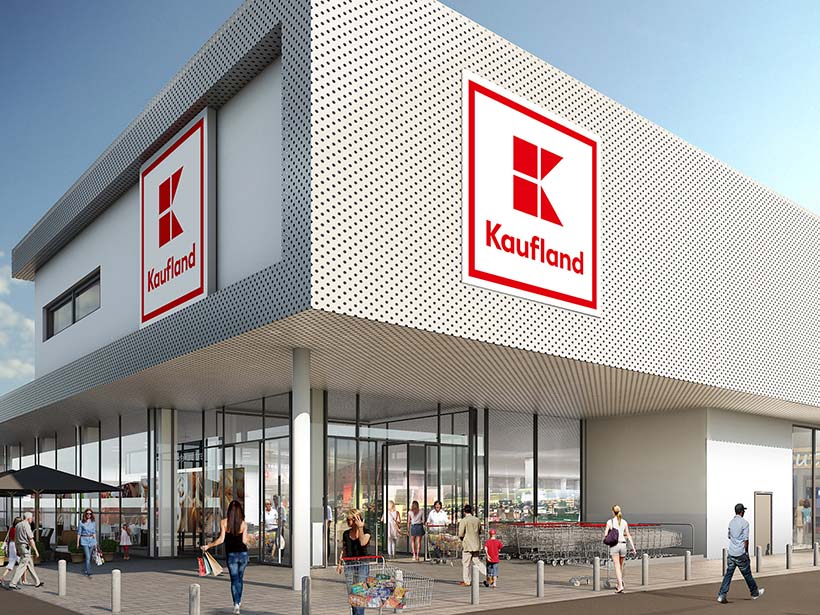German supermarket discounter Kaufland’s shock decision to abandon the Australian market – quitting before opening a single store, after devoting almost $500 million to the launch – is a positive for the grocery sector, with Coles and Metcash the biggest winners as they were viewed as most likely to lose market share to the foreign entrant.
JPMorgan analyst Shaun Cousins said in a note to clients that Kaufland’s exit was a surprise given the size of its investment.
He said the gap in the market that Kaufland would be filling was never obvious, and the planned rollout was widely spread.
Kaufland International acting boss Frank Schumann told German newspaper Handelsblatt that Kaufland “have always felt welcome in Australia”.
But he said the retailer sees “great growth potential” in Europe – particularly around consolidation.
JPMorgan said Kaufland’s exit was a positive for the industry as barriers to entry increased, and food inflation was more likely to persist.
The $100 billion grocery sector has certainly dodged a bullet with a costly price war now less likely.
Citi analyst Bryan Raymond said Kaufland’s entry was expected to disrupt what had been a very rational grocery industry over the past 12 months.
“We now see no near-term impediment to the constructive pricing environment remaining in place over the medium term,’’ Raymond said.
“At this time, we expected Kaufland to drive competition among private label products, primarily with Aldi, which would then impact Woolworths and Coles.

An artist’s impression of a proposed Kaufland supermarket.
“A rational grocery industry is likely to result in solid like-for-like sales growth and defensive earnings streams. Kaufland’s departure has removed a key risk to this stable market.
“While the impact of Kaufland was unlikely to be explicitly factored into consensus forecasts, continued rational markets are likely to result in upside to long-term consensus grocery margin forecasts.”
On Wednesday Kaufland shocked the market, as well as its 200 employees, by announcing it would dump its Australian launch plans and withdraw from the country.
Led by Australian managing director Julia Kern, Kaufland had spent more than three years buying properties, forging deals with suppliers and hiring staff to prepare for its first store openings in 2021.
But those plans are now in tatters, with Kaufland saying it will instead focus on its European operations.
Kaufland operates huge hypermarket stores that can be four times larger than a standard Woolworths or Coles and offer a range of categories such as fresh food, packaged groceries, general merchandise, toys, hardware and electronics.
Woolworths was least likely to lose share to Kaufland, Mr Cousins argued, whereas Coles and the Metcash-supplied independents were vulnerable.
“Woolworths has a clear strategic position in the market … with increasing efforts to leverage its scale in other adjacent income streams. Hence we suggest its recent history of market share gains is to continue,” Cousins said.

Kaufland had acquired Morayfield Village shopping centre.
“Coles lacks a clear strategic position in the market, is struggling with the more demanding consumer (negative EBIT margin mix to convenience and online) due to previous years of underinvestment, and is expected to remain a market share donor.
“Metcash supplies a wide range of independent supermarkets, encompassing the best and worst food retailers in Australia. Each has their own strategic point of difference, with varying levels of execution capabilities, yet it retains a tail of stores and is likely to remain a market share donor.
“The entry of Kaufland would likely have exacerbated the market share losses for Coles especially, as well as Metcash-supplied independents.”
Cousins said the gap in the market that Kaufland would be filling was never obvious, with rival Aldi already exploiting the discount segment.
Hypermarkets had not succeeded in Australia, he said.
“Aldi filled the discounter space that Dairy Farm (via the split up of Franklins in 2000 to incumbents and new entrants) and Bi-Lo (shut by Coles during the 2000s) had vacated, with Aldi yet to reach the high teens market share that discounters held in 2000.
“Costco created a club market yet its store growth has been slower than initially expected due to property challenges (food retail in often industrial-zoned locations) and its focus on profitability (pleasing, but not a focus of Masters or Bunnings in its international expansion).
“Hypermarkets have not proved successful in Australia, with Kmart’s Super K an example, so the offer would need to win customers over yet the need for such a format … was not obvious.”
This article originally appeared on www.theaustralian.com.au/property.










